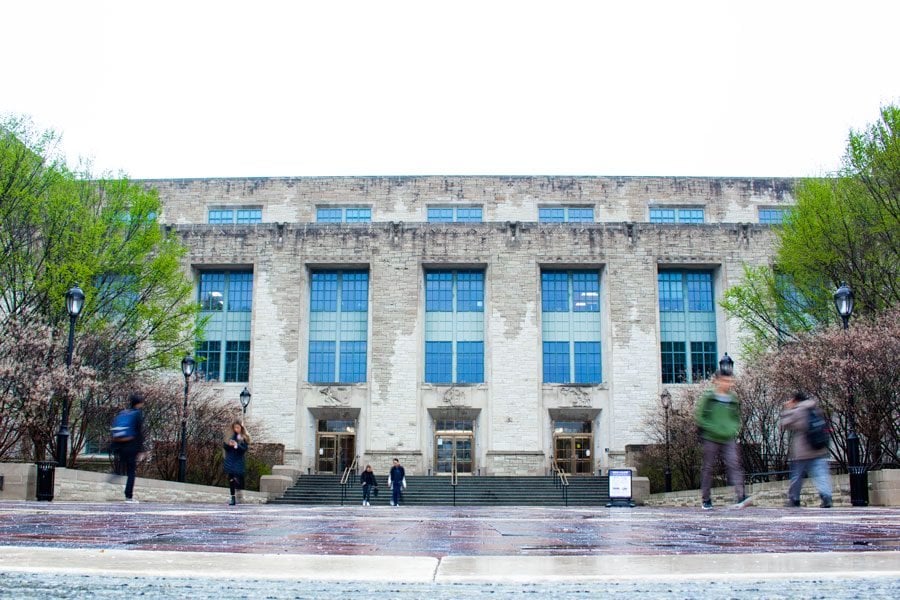NU joins Illinois universities in creating Institute for Mathematical and Statistical Innovation
Daily file photo by Evan Robinson-Johnson
The Technological Institute. Northwestern recently joined three other Illinois universities in establishing the Institute for Mathematical and Statistical Innovation, which serves not only as a mathematical sciences research institute, but also helps tackle current societal problems using ideas from mathematics and statistics.
July 30, 2020
Northwestern recently joined three Illinois universities in creating the new Institute for Mathematical and Statistical Innovation, a regional research center aimed at addressing important scientific and technological challenges with ideas from mathematics and statistics.
Led by the University of Chicago, the center also includes the University of Illinois at Chicago and University of Illinois at Urbana-Champaign.
IMSI first started when the National Science Foundation announced it was holding a competition for a mathematical sciences research institute. UChicago Math Prof. and Incoming Director of IMSI Kevin Corlette said he and a few professors from UIC and UIUC were discussing the possibility of putting together a proposal for the competition, and this effort eventually expanded to include others from their institutions as well as people from NU.
“This was a collaboration of the different universities, and this was all of our ideas to really pull our strengths to try to create as competitive of a proposal as possible, and there are great strengths shared by the four different institutions,” said Math Prof. and Department Chair Eric Zaslow. “(It’s) really this idea that we’re stronger together than competing against one another.”
Juan Meza, director for the NSF’s mathematical sciences division said six five-year awards were given out. He said the goal was to have an institute that will help serve the mathematical sciences community, but IMSI was particularly attractive because it seeks to help solve “urgent, complex, scientific and societal problems.”
“What IMSI did that was very nice was the combination of putting together both very, very abstract mathematics with very applied problems,” Meza said. “The goal was to try to look at the interface between those because that’s where a lot of the exciting new problems are going to be coming from.”
Meza added that IMSI’s proposal made it very clear that in addition to mathematics and statistics, the Institute will also look at complex problems in the domain of science and society, including climate change, materials research, data and information, and quantum information sciences.
As a result of the competition, IMSI received a $15.5 million grant from the NSF. The funding will support a five-year enterprise beginning Aug. 1. Corlette said IMSI has multiple workshops scheduled for the winter and spring and that IMSI will be implementing an internship program for graduate students in the mathematical sciences, as well as programs for undergraduates, students from fifth through twelfth grade and teachers in Chicago Public Schools.
“For several months, at least, we’ll be in ramp-up mode, so we’d hire staff, our space is being renovated, all of our events for the fall will be online and it’ll take us at least well into the next academic year before we’re at relatively normal operations,” Corlette said. “We’re still in the very initial stages right now.”
Math Prof. and Co-Principal Investigator on the grant Bryna Kra said since there are currently no math institutes in the greater Chicago area or in the Midwest that are still running successfully, IMSI will put together the strengths of all four institutions and create a strong mathematical institute representing both those regions.
“The idea was to join in to really make Chicago more of a mathematical hub than it already is,” Kra said. “There’s some very strong institutions already with very strong math departments, including our own, but to really accentuate that and make it stronger.”
Email: vivianxia2023@u.northwestern.edu
Twitter: @vivianxia7



